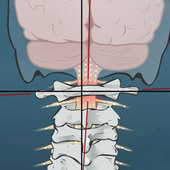Sleep. You know you need it, but are you actually getting enough? In our high paced modern society, sleep is often sacrificed at the expense of meeting a deadline, attending a social function, or watching just one more episode on Netflix.
It’s common to hear, ‘If I just push through this week, I can catch up on sleep on the weekend.’ Unfortunately, our systems are not quite wired that way (the idea of sleep debt will be discussed in future blogs). When you skimp on sleep, you are depriving your body of essential healing and repair time; when prolonged, this deprivation can lead to trouble concentrating/brain fog, increased risk of injury, and hormonal imbalances.
The following are simple tips to help you modify your evening routine to improve your sleep and wake up feeling rejuvenated!

- Avoid evening alcohol and caffeine consumption. Though this might seem obvious, there are a number of people who claim caffeine ‘does not affect me’ or ‘my evening nightcap helps me sleep better’. The truth is that whether you feel tired or not after your evening drink of choice, alcohol and caffeine actually shorten your sleep cycle and prevent you from dropping into the deep stages of sleep in which memory consolidation and healing take place. This shortened sleep cycle includes a disruption to your REM sleep (rapid eye movement sleep) in which dreaming occurs. When your REM cycle is shortened, you are more likely to feel tired throughout the day, have trouble concentrating, and may even feel a little foggy.
- Turn off your phone and TV, and grab a book! Melatonin is a hormone that works in controlling the body’s sleep and wake cycle. Recent research has found that blue light emitted by common electronic devices such as smart phones, tablets, computers, and TV screens decreases the production of melatonin and may contribute to sleep difficulties. This can be avoided by using special glasses or apps, such as f.lux, to filter out blue light emissions, or by avoiding the use of these devices a couple hours before you plan to go to bed. Opting for a literal page turner instead of a screen can actually help your brain relax better, allowing you fall into those deeper healing stages of sleep.
- Avoid eating carbohydrates right before bed. Carbohydrate consumption causes a spike in blood sugar and insulin levels; when you sleep, these levels drop and you fall into a hypoglycemic state that can cause you to wake up and have difficulty falling back to sleep. If you need to eat before going to bed, choose a high protein or healthy fat source such as a spoonful of peanut butter, some Greek yogurt, or a glass of milk. Proteins contain amino acids that can actually help promote sleep.
- Lower the room temperature. During the night, our body temperature naturally drops as we fall into the deeper stages of sleep. Room temperatures that are too hot make it harder for our bodies to self-regulate our internal temperature and impair our ability to achieve high quality sleep.
- Avoid late night exercise. Activities that increase your body temperature, such as intense physical exercise, can actually make it harder for you to fall asleep. If you are an avid late-night exerciser who also has trouble falling asleep, try switching up your routine to work-out in the morning instead. Studies have demonstrated that morning exercisers tend to be more energized throughout the day and actually gain higher quality sleep at night.
- Turn the lights out! Your circadian rhythm is the natural hormonal cycle in your body that allows you to transition from sleeping to waking states. Prolonged exposure to light can alter this rhythm and disrupt your ability to get a deep sleep. Using black out curtains and removing extraneous sources of light from your room will allow your body to fall more efficiently into the deeper stages of sleep.
Sleep is vital to grow, heal, and rejuvenate the body. Make sure you are getting the best quality of sleep possible!
Written by Dr. Michelle Speranza



